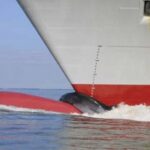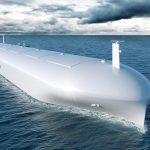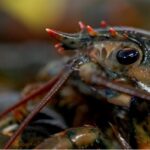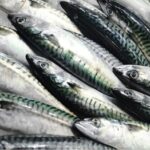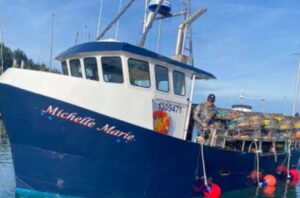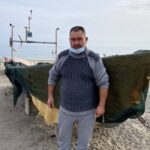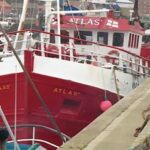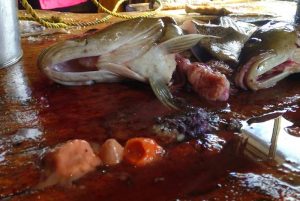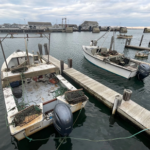Tag Archives: Oregon crabbers
Oregon crabbers and environmentalists are at odds as a commission votes on rules to protect whales
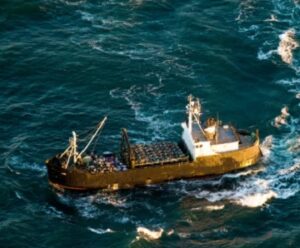 In the wheelhouse of a crab boat named Heidi Sue, Mike Pettis watched the gray whale surface and shoot water through its blowhole. Tangled around its tail was a polypropylene rope used to pull up crab traps. That was in 2004, off the waters of Waldport, Oregon. Pettis, a crab fisherman, said it’s the only time in his 44 years of fishing he has ever seen a whale caught in crab lines, and he believes that is proof such encounters are “extremely rare.” The Oregon Fish and Wildlife Commission is expected to vote Friday on whether to permanently set stricter rules and pot limits put in place in 2020 to protect whales. The restrictions, which were originally supposed to end after this season, would reduce the number of traps, known as pots, and how deep they can drop in the spring and summer months when humpbacks are more likely to encounter them. >click to read< 09:01
In the wheelhouse of a crab boat named Heidi Sue, Mike Pettis watched the gray whale surface and shoot water through its blowhole. Tangled around its tail was a polypropylene rope used to pull up crab traps. That was in 2004, off the waters of Waldport, Oregon. Pettis, a crab fisherman, said it’s the only time in his 44 years of fishing he has ever seen a whale caught in crab lines, and he believes that is proof such encounters are “extremely rare.” The Oregon Fish and Wildlife Commission is expected to vote Friday on whether to permanently set stricter rules and pot limits put in place in 2020 to protect whales. The restrictions, which were originally supposed to end after this season, would reduce the number of traps, known as pots, and how deep they can drop in the spring and summer months when humpbacks are more likely to encounter them. >click to read< 09:01
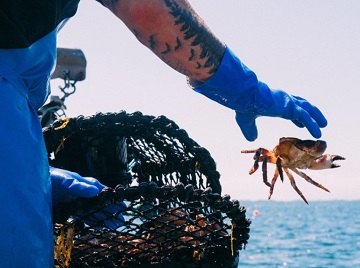
Pacific Seafood Controls the Dungeness Crab Market, but Small Fishermen Are Fighting Back
After a blockbuster 2022 crabbing season that saw an on-time, December 1 start date and record prices for fishermen, this year’s crab season didn’t kick off until mid-January after three regulatory delays. When the season did begin, crabbers were offered as little as $2 per pound for their catch, a price that left many struggling to pay staff and buy fuel and bait. Those conditions have squeezed the small businesses that make up the West Coast crabbing industry and act as the backbone for small towns up and down the shoreline. But this year appears to have brought boom times for one company in particular—Pacific Seafood. >click to read< 07:40
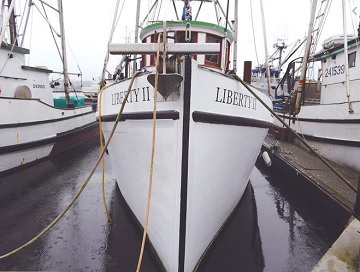
Oregon Crabbers demand opening of season
Small-vessel crabbers demand that state regulators commence Oregon’s Dungeness crab fishery, condemning the thrice-delayed season as a scheme by big operators to depress dock prices and control the $90 million market. A Jan. 3 letter by the “consortium” of crab fishers addressed to the Oregon Department of Fish and Wildlife blasted the “deeply misguided and extraordinarily harmful” decision by the agency last month to postpone the opening until at least Sunday, Jan. 15, due to concerns over meat quality and presence of domoic acid in some of Oregon’s 12 crab-fishing zones. “This group has strong incentives to prioritize a fast, high-volume harvest and reaps an enormous benefit from reduced competition that results from a delayed start,” the letter charged, explaining how prices plummet 50-75 percent following the primary holiday markets. >click to read< 16:42
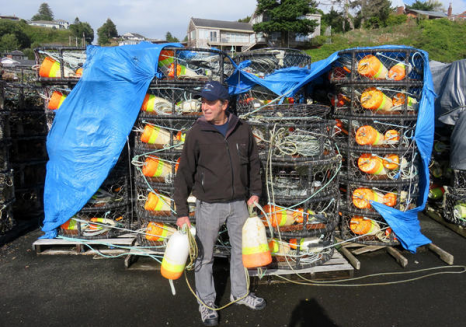
Fishermen: ‘We want to be proactive’ – Making The Sea Safer For Whales
More than 30 times this year, the federal government has received reports of whales tangled in fishing gear along the West Coast. Sometimes the whales manage to wriggle free. Other times you see heart-rending pictures on the news or a rescue mission. The culprit often involves Dungeness crab pot lines. Now Oregon crabbers are working with marine scientists to make the seas safer for whales and to avoid a black mark on their brand. Bob Eder has fished commercially out of Newport, Oregon for decades. “Over 45 years of pulling crab pots—I think I’ve probably hauled in close to a million—I’ve never encountered an entangled whale,” he said. ‘We want to be proactive’ click here to read the story 09:03
Scientists Still Eyeing the ‘Dead Zone’ By Terry Dillman. This article SCREAMS for collaborative research!
This article is a perfect indication of the benefits of industry involved collaborative research, while the history of R/V Henry B Bigelow demands cut backs to NOAA’s pathetic role of stock assessment.

































